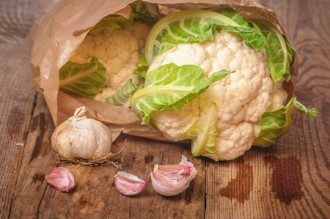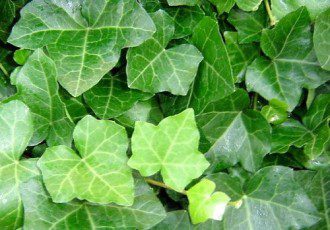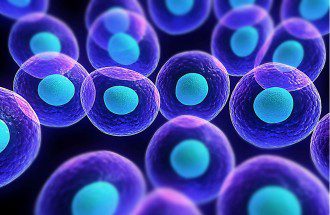9th November 2015
By Dr. Michelle Kmiec and Susan Hartman
Contributing Writers for Wake Up World
Glutathione, The ‘Master’ Antioxidant
If there were such a thing as a nutrient that “does it all”, glutathione would have to be a top contender for the number one spot. Glutathione is a powerful antioxidant that prevents damage to important cellular components, repairs and protects the body from harmful toxins and other dangers we encounter in our polluted environment.
Briefly, Glutathione (GSH) is a tripeptide comprised of three amino acids, cysteine, glutamic acid (ionic salt from glutamate), and glycine. All three of these amino acids are considered to be non-essential, meaning our body synthesizes them.
So if the body produces its own glutathione, then why is it necessary to consume foods that support glutathione production? The simple answer: Oxidation.
Oxidation is caused by nutrient-deficit diets, a polluted environment, pharmaceuticals (prescribed and over-the-counter), physical and emotional stress, electromagnetic stress, and radiation.
Oxidative stress is a primary cause of aging, sickness and disease. The oxidation of cholesterol is the root cause of heart disease and arteriosclerosis, not necessarily cholesterol levels as so many believe.
Glutathione is found in every cell of the body. It is thought that the younger you are the more glutathione your body produces. However don’t be misled by statements such as this because there are two very different explanations for decreased Glutathione levels:
- As we get older glutathione decreases do to the “normal aging process”, and
- The oxidative stress of our environment, the chemicals in our food, and both normal and unnecessary emotional stressors in life, cause glutathione levels in the body to decrease, thus compromising our immune systems and the body’s ability to detoxify.
And although the first explanation may be grounded in some truth, the second is far more logical. In fact, it is because of decreased immune function that we have an increase in all major diseases today!
Glutathione is vital for protecting against:
- Aging
- Autoimmune disorders
- Cancer
- Heart disease
- Alzheimer’s disease
- Dementia
Undisputedly, glutathione is needed in the body not just for normal functioning of the immune system, but also for optimal functioning. Remember the term oxidation? Glutathione is ‘the’ master antioxidant that aids all other antioxidants, such as Vitamin C and Vitamin E, in free radical scavenging.
For years, vitamins have been touted as free-radical killers and not only has this been proven by research, we now know that Glutathione is the most valuable player of them all! Imagine if you would, a football team. Each and every player has a vital role in moving the team toward its major goal—to win. If we were to think of each player as a different supplement, both offensive and defensive, a very interesting analogy would come about. When a team’s offense is on the field, they need to block or counter every move the defense makes in order to stay alive in the game. And which player is the one that is most often considered the MVP (most valuable player) on the winning team? The quarterback. A great quarterback can actually help the other players to excel in their roles on the field. In other words, he helps his teammates shine.
And the quarterback in the body’s fight against oxidation, and thus disease, is glutathione. The goal of glutathione and all of the free-radical scavengers in the body is simple—life!
The correlation between glutathione and the fight against free radicals has been known for quite some time, so it is unfortunate that a majority of the general public likely hasn’t heard of it.
The Lancet, the world’s leading general medical journal, published a review in 1998 entitled, Nuttal SL Glutathione: In Sickness and in Health, which clearly outlines the links between glutathione in health and disease. The study measured the amount of glutathione in blood plasma in both healthy and non-healthy individuals of all ages. What they found was interesting indeed. The higher the glutathione level, the less oxidative damage and the healthier the person; the lower the glutathione level, the more oxidative damage and the sicker the person. They concluded:
“Ageing is therefore associated with a decrease in plasma antioxidants and an increase in evidence of oxidative damage even in those who are apparently healthy. Disease, particularly acute severe disease requiring hospital admission, is associated with greater changes in antioxidants and evidence of oxidative damage.”
Glutathione is also known to be a potent detoxifier of drugs and carcinogens (cancer causing chemicals). If you remember, one of the components that make up the tripeptide of glutathione is cysteine. N-Acetyl-L-cysteine (NAC), a derivative of cysteine, is well recognized as the treatment for acetaminophen (Tylenol) overdose in hospitals. La Clinica Terapeutica, journal of Clinical and Laboratory Medicine and Surgery of Italy, did a study on the effects of reduced glutathione (GSH) administration and its effectiveness against liver damage caused by chronic alcohol consumption.
“…The relationship between glutathione, GGTP and glucaric acid is discussed, suggesting the possible role of GSH against the oxidative damage of alcohol.”
Another 2003 study, also from Italy, sought to directly link Glutathione and detoxification based on the premise:
“In humans, GSH depletion is linked to a number of disease states including cancer, neurodegenerative and cardiovascular diseases.”
They concluded the following:
“Glutathione is a critical factor in protecting organisms from toxicity and disease.”
So how can you increase Glutathione levels in your body?
Eat Foods rich in Glutathione

Consume plenty of sulfur-rich foods such as broccoli, cauliflower, kale, collards, asparagus, cabbage, garlic, onion and spinach. Foods high in sulfur increase glutathione production. It is worth noting that cooking these foods reduces the glutathione content.
Foods containing selenium, such as Brazil nuts, meat and seafood can also promote glutathione production. Selenium is a mineral that helps the body to produce glutathione.
Add Herbs and Spices That Help Prevent Glutathione Depletion
Turmeric, cardamom and cinnamon contain compounds that increase the production of Glutathione.
Reduce the Stress in Your Life
Chronic stress and anxiety is one of the main factors in decreased glutathione levels. It is important to seek out ways in which to reduce every day stressors. Spending time outdoors, listening to music, going for a walk, reading and meditating are all great ways to de-stress.
We have all heard how yoga has the ability to reduce stress. Well, a 2007 study looking at the effects of yoga on oxidative stress showed that, “Reduced glutathione level increased significantly (p < 0.05) in the yoga group after completion of training.”
For more information, please read the article: Yoga’s Age-Defying Effects Confirmed by Science.
Reduce the Amount of Chemicals You Are Ingesting – Eat Organic
The body not only naturally produces Glutathione, but it also recycles it. However, when there is too much oxidative stress caused by a poor diet and consuming foods laden with toxic chemicals such as those found in pesticides, herbicides, artificial sweeteners, synthetic food dyes, nitrates and other food preservatives, glutathione becomes depleted subjecting us to infection, inflammation and the inability to rid our bodies from toxins.
For more information, please see: Here’s What Happens When You Eat a 100% Organic Diet
Drink plenty of Clean Filtered Water – at Least ¾ of a Gallon a Day (but Try for 1 Gallon)
Drinking plenty of water each day plays a major role in our body’s natural ability to detoxify. But unfortunately our water sources are polluted with harmful chemicals such as chlorine, ammonia, fluoride and prescription medications, just to name a few. Continuously ingesting toxic chemicals in the water you are drinking can deplete glutathione levels and lead to oxidative stress and liver damage. Drinking clean filtered water is one of the best ways to protect your body from the thousands of known toxins that may be present in our water supplies.
To learn more, please see the article: Are You Drinking Clean Water?
Reduce the Amount of Chemicals in Your Home – Add Filter Plants
You are exposed to dangerous chemicals everyday, and in the least likely place—your home! Chemicals such as trichloroethylene, benzene, formaldehyde, xylene and toluene have all sadly become part of the air we breathe. Fortunately Mother Nature has the answer!

There are many indoor houseplants that actually filter many of these chemicals from the air allowing for a healthier environment. In the 1980s, NASA and the Associated Landscape Contractors of America researched houseplants that may be used to purify the air in space facilities. This study concluded that the number one air-filtering houseplant is the English Ivy. Other plants that can reduce the number of toxins in the air include the Peace Lily, Palm, Philodendron, Spider Plant and Golden Pathos.
For more information, please see: Top 7 Houseplants for Clean Air and a Restful Sleep
Eliminate Nutritional Deficiencies
Nutritional deficiencies caused by improper nutrition, environmental pollutants, pharmaceutical drugs and unhealthy lifestyle practices can all lead to oxidative stress and decreased levels of Glutathione. Eating a nutrient rich whole foods diet, taking supplements when necessary, and taking measures to reduce physical and emotional stress and can help to boost Glutathione levels and counteract some of the factors that deplete it.
Glutathione Supplementation
There is ongoing debate over whether oral supplementation of glutathione is effective at increasing levels in the body. There are those who believe that glutathione supplementation is not effective because since it is a protein, it is digested and not absorbed. The same could be said about eating foods to increase glutathione levels. It is true that the body digests various foods differently. For example, proteins take much longer to digest than carbohydrates. However, digestion and/or absorption are also very much dependent upon the health of the gut. And sadly, most studies done on “healthy” adults have a low standard of what constitutes a healthy gut. This is very apparent when you are in a grocery or drug store perusing the aisles dedicated to relieving diarrhea, constipation, and heartburn.
Putting that aside, there are studies that claim that oral supplementation of glutathione is effective. There is one factor that sets these studies apart from the others. The participants in these studies were instructed to take the glutathione on an empty stomach along with a full glass of water.
John P. Richie, Jr., Ph.D., Professor of Public Health Sciences and Pharmacology at Penn State College of Medicine found:
Source Article from http://wakeup-world.com/2015/11/09/could-glutathione-be-the-key-to-slowing-the-physical-aging-process/
Related posts:
Views: 0
 RSS Feed
RSS Feed

















 November 8th, 2015
November 8th, 2015  Awake Goy
Awake Goy 

 Posted in
Posted in  Tags:
Tags: 
















